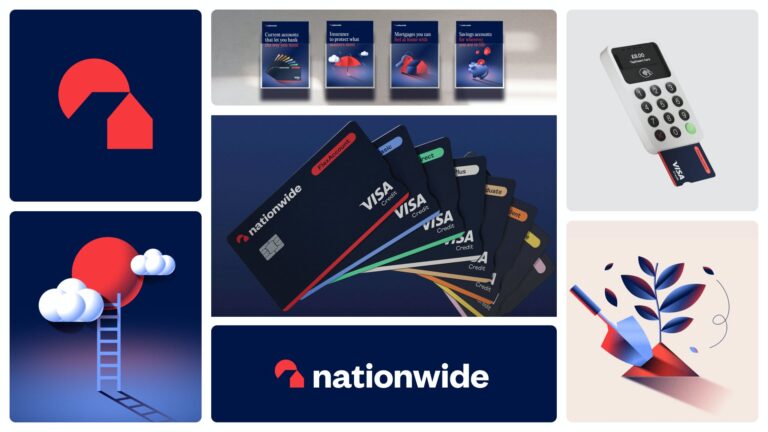The Joy of Happiness When Shared: Embracing the Power of Connection
Happiness is often considered one of the most sought-after emotions in life. However, the true essence of happiness goes beyond personal experiences—it flourishes when shared. The concept of “happiness when shared” resonates with the idea that happiness grows exponentially when it is expressed and enjoyed with others. Whether it’s with friends, family, or even strangers, the act of sharing happiness creates bonds, strengthens relationships, and spreads positivity in communities.
In this article, we will explore why happiness is amplified when shared, the psychological benefits it offers, and how you can cultivate and share your happiness with others for a more fulfilling and joyful life.
Why Happiness When Shared Matters
Happiness is a deeply personal feeling, but its impact can be far-reaching when shared with others. Research shows that human beings are inherently social creatures, and our well-being is closely tied to the connections we form with others. Sharing happiness, whether through laughter, kind words, or acts of service, creates a ripple effect that can enhance not only our own mood but also the well-being of those around us.
When happiness is shared, it has the power to create a sense of unity. People who share in each other’s joy experience stronger emotional bonds, which leads to greater trust and empathy within relationships. The act of celebrating someone else’s happiness can enhance the feeling of togetherness and contribute to a sense of belonging within communities.
Psychological Benefits of Sharing Happiness
The psychological benefits of sharing happiness go beyond the initial joy we feel. Engaging in positive social interactions that involve sharing happiness can provide several long-term mental health benefits, including:
- Increased Satisfaction and Fulfillment: When we share positive emotions, it strengthens the feeling of connection with others. The shared experience of happiness fosters a sense of belonging and satisfaction, which can boost overall life satisfaction.
- Enhanced Well-Being: Research has shown that people who frequently share happy moments with others tend to experience improved emotional well-being. Acts of kindness, appreciation, and celebration make us feel valued and recognized, which contributes to greater happiness.
- Reduced Stress: Sharing happiness with others can act as a buffer against stress and anxiety. Positive interactions can promote relaxation and reduce the harmful effects of stress, such as elevated cortisol levels, by releasing feel-good hormones like oxytocin.
- Increased Resilience: Experiencing happiness together strengthens our emotional resilience. In times of difficulty, the bonds formed through shared happiness can provide emotional support, making it easier to cope with challenges and adversity.
- The Spread of Positivity: Happiness, when shared, doesn’t just stay with you and the person you’re sharing it with—it spreads. Positive emotions are contagious, and one act of kindness or joy can trigger a chain reaction, influencing others to experience happiness as well. This creates a collective uplift, enhancing the overall emotional environment of a community or group.
How to Share Happiness Effectively
Sharing happiness doesn’t require grand gestures. Often, the simplest acts of kindness can have the most profound effect. Here are a few ways to share happiness effectively:
- Compliment Others: A genuine compliment can brighten someone’s day and foster positive feelings. Whether it’s acknowledging someone’s hard work or complimenting their appearance, small gestures of appreciation go a long way.
- Engage in Acts of Kindness: Doing something kind for someone, like holding the door open or offering a helping hand, is a great way to spread happiness. These acts not only benefit the recipient but also create a positive atmosphere that encourages others to do the same.
- Share Positive News: Whether it’s a personal achievement or something uplifting in the world, sharing good news helps others experience happiness through your joy. Celebrating successes together creates a sense of shared accomplishment.
- Spend Quality Time with Loved Ones: Engaging in meaningful conversations and activities with friends and family can deepen your emotional connections. Being present with those you care about fosters a sense of shared happiness and strengthens relationships.
- Offer Support During Tough Times: Sometimes, sharing happiness means offering a listening ear or providing encouragement during difficult moments. Being there for others in times of struggle creates a deep bond that enhances shared emotional resilience.
- Practice Gratitude: Expressing gratitude not only makes you feel more connected to others, but it also helps others feel appreciated and valued. Thanking someone for their presence or contribution can make them feel special and contribute to the collective happiness.
The Science Behind Happiness When Shared
The idea that happiness is amplified when shared is not just a philosophical concept—it’s backed by science. Neurotransmitters like dopamine and oxytocin play a significant role in regulating our emotions. These chemicals are often released during positive social interactions, such as when we connect with others through shared happiness.
- Dopamine: Known as the “feel-good” neurotransmitter, dopamine is released when we experience something pleasurable. Sharing happiness can stimulate dopamine production in both the giver and the receiver, enhancing feelings of joy and satisfaction.
- Oxytocin: Often referred to as the “bonding hormone,” oxytocin is associated with social bonding and trust. It plays a crucial role in deepening relationships and creating emotional bonds. When we share positive experiences, oxytocin is released, further solidifying the emotional connection between people.
- Endorphins: These natural painkillers also promote feelings of happiness. Activities like laughter, dancing, or even exercising with others can stimulate endorphin production, which boosts overall well-being and creates a sense of shared happiness.
Happiness and Social Media: The Double-Edged Sword
In the digital age, social media has become a common platform for sharing moments of happiness. While it can be a great way to stay connected and share joy with others, there are some considerations to keep in mind:
- Positive Connections: Social media allows people to share positive moments, which can create a sense of community and connection. Celebrating milestones, achievements, and special moments can contribute to shared happiness on a global scale.
- Comparison and Envy: On the flip side, social media can sometimes foster feelings of comparison and envy. Constant exposure to others’ happiness can lead to unrealistic expectations or dissatisfaction with one’s own life. It’s important to maintain a healthy perspective and remember that happiness is a personal journey, not a competition.
The Ripple Effect of Shared Happiness in Communities
When happiness is shared within a community, it has the potential to transform the collective emotional landscape. Communities that prioritize joy and positivity experience better overall well-being. Whether through shared celebrations, acts of kindness, or collective efforts to support one another, the impact of shared happiness creates a more resilient and connected society.
Happiness, when shared in a community, can also inspire action. People who feel supported and uplifted are more likely to engage in pro-social behaviors, which further contributes to the collective good. Whether it’s through volunteering, helping neighbors, or advocating for positive change, shared happiness can lead to tangible improvements in the community.
Conclusion
The idea of “happiness when shared” highlights the power of human connection. It teaches us that joy is not meant to be kept to ourselves but to be spread and enjoyed collectively. Sharing happiness not only strengthens relationships but also promotes mental and emotional well-being. By engaging in simple acts of kindness, celebrating the successes of others, and cultivating gratitude, we can experience the profound benefits of happiness when shared.
Incorporating happiness into our daily lives through connections with others is one of the most rewarding practices we can engage in. As we continue to share joy, we create a ripple effect that enhances our own lives as well as the lives of those around us.
FAQs
Why is happiness amplified when shared?
Happiness grows when shared because of the emotional bonds it creates between individuals. Positive social interactions release feel-good chemicals in the brain, enhancing joy and satisfaction for both the giver and receiver.
How does sharing happiness improve relationships?
Sharing happiness fosters trust, empathy, and connection, leading to stronger and more meaningful relationships. It helps people feel appreciated and valued, deepening emotional bonds.
What are some simple ways to share happiness?
Small acts of kindness, such as giving compliments, offering support, spending quality time, and expressing gratitude, are simple yet effective ways to share happiness with others.
Can sharing happiness reduce stress?
Yes, positive social interactions and shared joy can lower stress levels by promoting the release of calming hormones like oxytocin, which helps relax the body and mind.
How can I spread happiness in my community?
By engaging in acts of kindness, volunteering, and celebrating collective achievements, you can help foster a sense of community and shared happiness, which leads to a more supportive and resilient environment.
What role does social media play in sharing happiness?
Social media can be a powerful tool for sharing moments of happiness and connecting with others globally. However, it’s important to maintain a balanced perspective to avoid comparison or envy.







